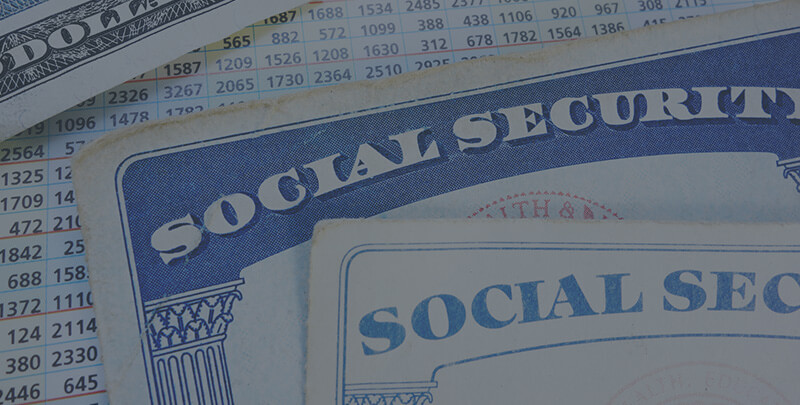Understanding the Importance of Your Social Security Number
Social Security Numbers (SSNs) are unique identifying numbers assigned to U.S. citizens and eligible residents. Your SSN is used to identify you with a wide variety of third-party organizations, from government agencies to businesses.
Criminals who gain access to your SSN may use it to steal your identity, damage your credit, and access your financial accounts.
When Is It Safe to Share My Social Security Number?
In some cases, it is reasonably safe to share your SSN:
- When you apply for credit, the lender needs your SSN to check your credit.
- When you file your tax returns.
- When you open accounts with certain banks.
- When you request services from government agencies like the Department of Labor.
- When you request copies of your credit reports from Experian®, Equifax®, and TransUnion®.
7 Practical Tips to Protect Your Social Security Number
1. Don’t Send Your SSN in a Message via an Electronic Device
Don’t send your SSN in a message, such as an email, text, or instant message, from your electronic device. These messages could be intercepted or forwarded along to other third parties. If you must provide your SSN, it’s better to do it in person or using a secure system (such as a lender’s online application portal).
2. Don’t Give It Out to Strangers
Never share your SSN with a stranger who requests it over the phone. You should contact the organization directly through their official communication channels.
3. Monitor Your Bank and Credit Card Accounts
When someone has access to your SSN, they may be able to access your financial accounts. Monitor your accounts, read your monthly statements, and report any unauthorized transactions. You can also check if your bank has additional security features including:
- Biometric logins that require facial or fingerprint recognition to access your mobile account.
- Multifactor authentication that requires an additional verification step when logging into your account.
- Alerts that notify you when your account is overdrawn, transactions exceed a certain amount, or if someone uses your SSN to access your account.
4. Consider an Identity Protection Service
Identity protection services look for signs of identity theft and warn you when your information is compromised. They can also help you lock down your SSN and protect your identity. With IdentityIQ identity theft protection services you get:
- Regular copies of your credit report and credit scores.
- Alerts when there are significant changes in your credit report.
- Dark web monitoring.
- Identity restoration services and identity theft insurance, underwritten by AIG.
5. Don’t Carry Your Social Security Card in Your Wallet
There are certain scenarios when you may need your physical Social Security card, such as when you start a new job, or you need to use it as a form of identification. But most of the time, you should not carry your Social Security card with you.
6. Don’t Forget to Protect Your Child’s SSN
Criminals can commit fraud using your child’s SSN and go undiscovered for years until the child applies for credit as an adult. Here are some tips to protect your child’s SSN:
- Keep track of your child’s SSN and protect it like you would your own.
- Pre-emptively freeze your child’s credit using their birth certificate.
- Teach your child online safety and good data security habits.
7. Ask How and Why It Will Be Handled
When a medical provider, business, school, or other organization requests a SSN, make sure you ask the following questions:
- Why do you need my SSN?
- How will you protect my SSN?
- Can I use an alternative method of identification?
- Can you use the last four digits of my SSN instead of the entire number?
Just because someone asks for your SSN doesn’t mean you have to provide it. For example, you can leave the SSN field blank on many medical forms and still receive medical services without any issue.
Advanced Measures for SSN Protection
1. Encrypting Your Data
You can use a virtual private network (VPN) to encrypt your web traffic and route your online activity through a server belonging to the VPN provider. Your data is effectively hidden from third parties that wish to view it, including when you share your SSN online. Remember, even when using a VPN, you should never share your SSN when it isn’t absolutely necessary.
2. Blocking Electronic Access to Your SSN
If your SSN has been compromised, you can request the Social Security Administration to block electronic access by calling 800-772-1213. This stops all automated telephone and electronic access to your Social Security record.
3. Using Self Lock Features
Employment identity theft occurs when someone uses your SSN to gain employment. You can place a “Self Lock” to lock your SSN and prevent it from being used by E-Verify, a web-based system that employers use to confirm employment eligibility.
What to Do If Your Social Security Number is Compromised
If you discover that your SSN was stolen or compromised, take these steps to protect your identity:
- Report the fraud to the FTC at IdentityTheft.gov or by calling 877-382-4357.
- Place a fraud alert or credit freeze on your credit report with Experian, Equifax, and TransUnion.
- Check your credit report and dispute inaccurate information with the major credit bureaus.
- File a police report and provide a copy of your identity theft report from the FTC.
- Continue to monitor your financial accounts and report unauthorized transactions.
- Report fraud to the SSA and check your Social Security statements.
- Contact the IRS if your SSN was used to file a fraudulent tax return or to gain employment.
Consider signing up for identity theft monitoring by IdentityIQ services that proactively monitors your SSN and warns you about signs of fraud. You gain identity theft protection, real-time fraud alerts, and assistance when you need to recover your identity.

